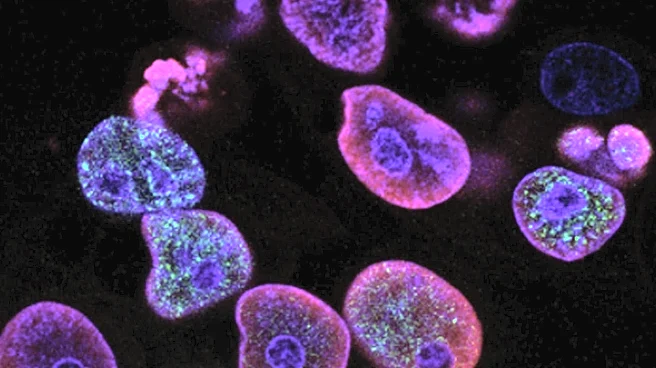What's Happening?
A preclinical study conducted by researchers from the University of California, Irvine, and the University of California, Santa Barbara, has demonstrated that retinal progenitor cells (RPCs) may offer significant benefits in treating diabetic retinopathy (DR). The study involved intravitreal transplantation of RPCs in a rat model of DR, showing improvements in retinal function and vascular integrity. The research highlights the potential of RPCs to provide both neuroprotective and vasculoprotective benefits, addressing a critical unmet need in current DR therapies, which primarily focus on vascular complications.
Why It's Important?
Diabetic retinopathy is a leading cause of vision loss globally, affecting millions of people with diabetes. Current treatments often have significant side effects and do not address the loss of retinal neurons. The findings from this study suggest that RPC transplantation could become a viable cell-based therapy, offering a new approach to treating this debilitating condition. If successful in further trials, this therapy could improve the quality of life for patients by preserving vision and reducing the need for more invasive treatments.
What's Next?
The promising results from this study support further investigation into RPCs as a potential therapeutic approach for diabetic retinopathy. Future research will likely focus on clinical trials to evaluate the safety and efficacy of RPC transplantation in humans. Success in these trials could lead to the development of new treatment protocols and potentially FDA approval, providing a new option for patients suffering from diabetic eye diseases.










